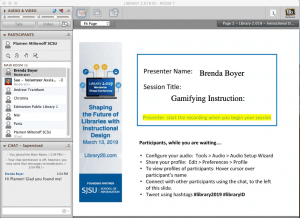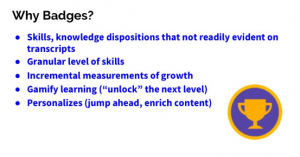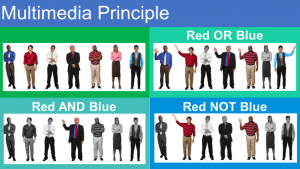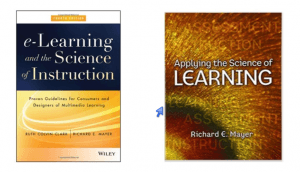Jan
2019
Future of Libraries with Instructional Design
Library 2.019 virtual mini-conference, “Shaping the Future of Libraries with Instructional Design
Wednesday, March 13th, from 12:00 – 3:00 pm US Pacific Daylight Time (click https://www.timeanddate.com/worldclock/fixedtime.html?msg=Library+2.019+ID&iso=20190313T12&p1=283&ah=3 to see in your local time zone).
Here are the links to the recordings of the sessions:
https://www.library20.com/page/recordings-id (you must be logged in)
This is a free event, thanks to our founding conference sponsor: School of Information at San José State University.
ATTENDING: We will send links for attending the conference a day or two before the event.
If you have friends or colleagues that wish to attend, this is a free event and we encourage you to share our information widely. However, please send them to the conference registration page (https://www.library20.com/instructionaldesign) rather than giving them the above link directly as it will allow us to track participation.
https://www.library20.com/instructionaldesign
#library2019 #libraryid
Dana Bryant
Sandy Hirsch, SJSU School of Information.
Steven Bell, John Shank – integrating ID into practice. blended librarianship.
critical mass of librarians doing ID and libraries hiring IDs.
Michael Flierl
Assistant Professor of Library Science, Purdue University
Dana Bryant
Lead Instructional Technologist for Academic Technology Services, Woodruff Library, at Emory University
Lindsay O’Neill
Faculty, California State University, Fullerton’s Master of Science in Instructional Design and Technology Program
Ste
Asso
https://www.library20.com/page/library-2-0-schedule-gmt-4
What is ID: ID create an environment conductive to students’ success. Thoughtful and applied design. Making faculty and instructors’ life easier. Allow faculty to do what they do best.
Lindsey: solving the instructional problem with the tools at hand.
go-to ed tech? What is the hot tech right now?
Lindsey: H5P (open source) CC – licensed, Moodle, WordPress, build online tutorials for free (Isolde), Norway, well based, VR tours. Will H5P become paid? Michael: cell phones Dana: Emory VoiceThread. From the chat: Articulate365 (pricy), Kahoot, Peardeck, Yellowdig, vidgrid, Adobe Spark, Adobe POst, padlet, Groupme instead of Canvas, Vyond, Coggle, wakelet, Phinx
Suggestions for librarians who want to build ID skills. Dana: connect with the regional community if no ID on campus. Community of practice. Using ID tools, speakers outside of campus. Lindsey: teaching myself what is most interesting to me. what technologies are important. Find a learning community. Michael: repeat the others
keep up to date on ID theory and practices: Dana – ELI, OLC (Online Learning Consortium). ELearning Heroes. Lindsay: corporate word. Michael: POD
the one-shot instruction: what is the approach (q/n from the chat); Dana – ID as a services. person dedicated following up with people requested either ID class or training, open the line of communication. summative evaluation type of activity since we are failing to evaluate how well students absorbed the information. LIndsey: one-shot for basics (e.g. freshman), build scaffold program, reserved the one shot for meeting with librarians, for hands-on. Michael: work with faculty member and rewrite a program, build assessment rather then only deliver
areas of impact: subject matter librarians, working with faculty to use of the library resources, new faculty drawn in info and if not follow up, Canvas support. Michael: librarians and ID working directly with faculty rewriting their curricula, measure it, demonstrating library need, 3000 students – correlation. document the lib contribution to student learning directly, the teaching-learning culture change. using info and data in more authentic ways. Lindsey: disconnect the way librarian teach vs faculty teach. Coordination scaffolding.
q/n from the chat. easily. how can non ID librarian can easily implement ID type:
Lindsey: new to ID? Google. Jargon and Acronyms. re framing how you see ed technology. technology as something to get the job done. no need to get fancy.
Dana: same as Lindsey. But also learning theories and learning outcomes. From ID perspective: what they will come out with by the end of the session. action words.
Michael: mindset. what students want to learn, before what I will teach. backward design – understanding by design. UDL. Grab a friend and talk through.
Tara
ed tech is not getting job done:
clickers for attendance is horrible idea.
from the chat:
Dee Fink’s Taxonomy of Significant Learning1
https://www.byui.edu/outcomes-and-assessment-old/the-basics/step-1-articulate-outcomes/dee-finks-taxonomy-of-significant-learning
Association of Talent Development
Christy Tucker’s blog – Experiencing E-Learning
https://e-learning.zeef.com/tracy.parish
https://www.lib.umich.edu/blogs/tiny-studies/using-pilot-study-test-and-assess-new-instruction-model
I had a really interesting role in grad school where we lived in the land between tech support and pedagogical / design support.
From Rajesh Kumar Das to All panelists and other attendees: (02:38 PM)
Good to hear from mike about affective learning. In this case, could you please focus what kind of technique is approprite for what, i.e. Didactic instruction, a low-complexity teaching technique such as a “Quiz Bowl”, or Jigsaw Method as high-complexity strategy, or both.
From Hailey W. to All panelists and other attendees: (02:36 PM)
As an ID librarian and the campus LMS administrator I struggle with getting them to see that other side of my role. That I’m not just “tech support”. Anyone else? Een jsut not being tech support?
From Vickie Kline to All panelists and other attendees: (02:44 PM)
As a librarian not formally trained in ID, I think a good entry point for exploring is Universal Design for Learning. We also need to pay attention to creating accessibility materials…
From Heather Quintero to All panelists and other attendees: (02:45 PM)
I always start with ADDIE… I am formally trained in ID and am an IT trainer for librarians. ADDIE is a framework for every class I make for both live and online classes. Don’t disregard ADDIE.
From Allison Rand to All panelists and other attendees: (02:47 PM)
The Wiggins and McTighe is a great book!
From Shane to All panelists and other attendees: (02:48 PM)
++SLIS open-source course on Instructional Design for Library Instruction
From Wendy to All panelists and other attendees: (02:49 PM)
Char Booth’s USER is also a very good model
https://web.mit.edu/jbelcher/www/TEALref/Crouch_Mazur.pdf
From Roberta (Robin) Sullivan to All panelists and other attendees: (02:53 PM)
@Rachel, Peggy, Shane – an open source course is available. Check out the SUNY’s Quality by Design (QbD): Strategies for Effective Teaching and Quality Course Design at: http://suny.edu/qbd This course is available as a facilitated version at least once each semester and as a self-paced non-facilitated version in Blackboard’s CourseSites. After completing the course requirements you can earn a Digital Badge to show your accomplishment.
From Naomi Toftness to All panelists and other attendees: (02:55 PM)
Just heard the terms “deliberate innovation” vs. “desperate innovation” that totally speaks to my situation with wanting to adopt the new cool tech
++++++++++++++++++++++
 SESSION LINK – https://sas.ell
SESSION LINK – https://sas.ell
Session Title: Gamifying Instruction: Breakouts and Badges!
Your Name and Title: Dr. Brenda Boyer, Librarian & Instructor
Your Library, School, or Organization Name: Kutztown Sr. High School, Rutgers University
Your Twitter Handle (@name): @bsboyer
Name(s) of Co-Presenter(s)
Area of the World from Which You Will Present: Kutztown, PA
Language in Which You Will Present: English
Target Audience: Instructional Design Librarians
Short Session Description: Build engagement for your online library instruction using LMS features, Breakout boxes, and digital badges.
Session Strand (use the “tag”): {Session Strand (use the “tag”):}
Full Session Description: It’s time to amp up your library instruction! Gamifying instruction in research skills such as database usage, advanced searching, & more can increase engagement and drive independent learning for students of all ages. This session will describe how learning management system (LMS) features can be combined with digital microcredential
Lin
Other Websites / URLs Associated with Your Session:
Your Bio: Dr. Brenda Boyer is a librarian and instructional designer. She has developed online instruction for secondary learners in the Kutztown (PA) School District, as well as for graduate and professional development learners at Wilson College and Rutgers University. She designed and instructs the Rutgers graduate course, Learning Theory, Inquiry, & Instructional Design, and is a frequent presenter at AASL, Internet@School
Emai
notes from Brenda’s session:
are we getting the job done, is our instruction sticking, what evidence we do have?
differentiate: who is ready to do what” at what skill level? how to bring everybody up to speed?
3 elements of Digital Gamification: leverage LMS (set game levels); how digital badges are paired 3. using digital breakout boxes to push challenge, skills
each chat as prerequisite for the next. prerequisite in LMS. Each game level is module. completed with a quizz. if they pass the quiz, opens challenge.1. what is page (facts about a tool to learn about[ what the tool does, feature, etc.) 2. suppe rshort video tour (3 min max), talk about something unique 3. quick quiz (max 5 q/s from the intro page and video). pass the quiz (100 %) to unlock the challenge level. 4. challenge level. digital breakout box embedded in the LMS. breakout using Google Forms. various locks (words, letter, numbers)
Badges why?
Breakout Boxes
++++++++++++++++++++++
SESSION LINK – https://sas.ell
Session Title: Improving Library Tutorials: The Multimedia Design Principles
Your Name and Title: Darlene Aguilar, Instructional Design Librarian
Your Library, School, or Organization Name: Loyola Marymount University
Your Twitter Handle (@name): @DarleneA_ID
Nam
Area of the World from Which You Will Present: Los Angeles, CA
Language in Which You Will Present: English
Target Audience: Reference and Instruction Librarians, Instructional Designers, Tutorial developers, Academic Librarians
Short Session Description: This session will review Mayer’s (2001) Multimedia Design Principles to help improve instructional modules, tutorials, and videos.
Session Strand (use the “tag”): {Session Strand (use the “tag”):}
Full Session Description: Librarians are creating more online modules, videos, and tutorials to teach information literacy skills. Whether designing instruction online or in-person, research-based instructional methods are required and learning Mayer’s Multimedia Design Principles is the best place to start. In this session, I will review essential prior-knowledge on image types and working memory. I will then show learners how to minimize cognitive overload using these 12 principles: multimedia, spatial contiguity, temporal contiguity, coherence, modality, redundancy, individual differences, signaling, pacing, concepts first, personalization
Link to Conference Site Session Proposal (full URL with http://): https://www.lib
Other Websites / URLs Associated with Your Session: https://linkedi
Your Bio: Darlene Aguilar is an Instructional Design Librarian at Loyola Marymount University where she designs and develops video tutorials and online modules on information literacy and library related topics. Additionally, she provides “best practices” training in instructional design to other LMU librarians. She graduated from the University of Southern California with a Master’s in Education for Learning Design and Technology and previously worked at LAUSD for 7 years. She strives to remove learning barriers that are embedded in instruction and curriculum and make learning accessible to all learners.
Email: darlene.aguilar
notes from Darlene Aguilar session: spacial contiguity, temporal contiguity. Modality: animation + narration better then animation + text, redundancy: animation and narration then animation + narration + text







